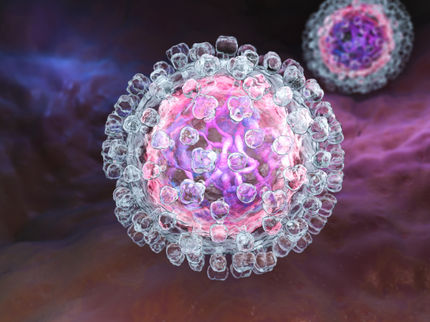Eiger BioPharmaceuticals Announces Initiation of CLEAN-1 HCV Phase 1b Trial
Proof of Concept Study Investigating NS4B-RNA Binding Inhibitor
Advertisement
Eiger BioPharmaceuticals, Inc. announced that the first patients have been dosed in a clinical trial in patients chronically infected with the hepatitis C virus (HCV). The trial, run in centers in Australia and New Zealand, will investigate the antiviral effect of clemizole monotherapy in the absence of interferon.
CLEAN-1 will evaluate the safety and antiviral activity of clemizole, a first generation antihistamine, in 28 days of oral therapy in treatment-naive patients infected with HCV genotypes 1 and 2. This direct antiviral study represents an important first step in evaluating the therapeutic potential of inhibiting a new target in HCV - small molecule inhibition of the interaction between NS4B and HCV-RNA that is required for HCV replication.
"This proof of concept study is an important first step in our comprehensive development strategy for clemizole and newly discovered NS4B-RNA binding inhibitors for the treatment of HCV," said David Cory, President and CEO of Eiger. "Inhibiting the NS4B-RNA interaction represents an exciting new approach toward developing interferon-free, virus-specific agents to treat HCV."
Eiger BioPharmaceuticals recently announced the acquisition of the exclusive license to this novel HCV technology, discovered in the labs of Stanford scientist and Eiger Founder, Dr.Jeffrey Glenn, M.D., Ph.D. and colleagues. Clemizole targets a non-structural protein found in the HCV genome, NS4B, which binds to HCV-RNA and is required for virus replication. Disrupting the function of this protein represents a new approach to treat HCV infection and may be associated with less drug resistance than polymerase and protease inhibitors in development.
Binding of the non-structural protein NS4B to the 3' terminus of the HCV negative RNA strand is a recently identified target for drug intervention. The requirement of this target for viral replication has been genetically validated. The two component nature of this target, involving interaction between NS4B and HCV-RNA, creates mutational constraints that should decrease resistance to pharmacologic inhibitors, compared to agents designed against a single component target such as the NS3 protease. Clemizole hydrochloride was identified as a specific inhibitor of NS4B-RNA binding.






















































